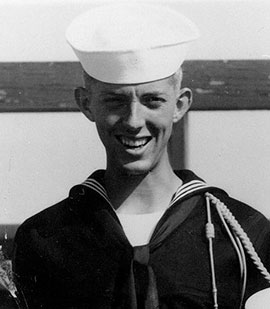Four Tennesseans received the Medal of Honor during the Vietnam War, including Sergeant Mitchell Stout, who displayed unyielding courage when he picked up an enemy-thrown grenade and used his body to shield and protect his fellow soldiers in the bunker at the expense of his own life.
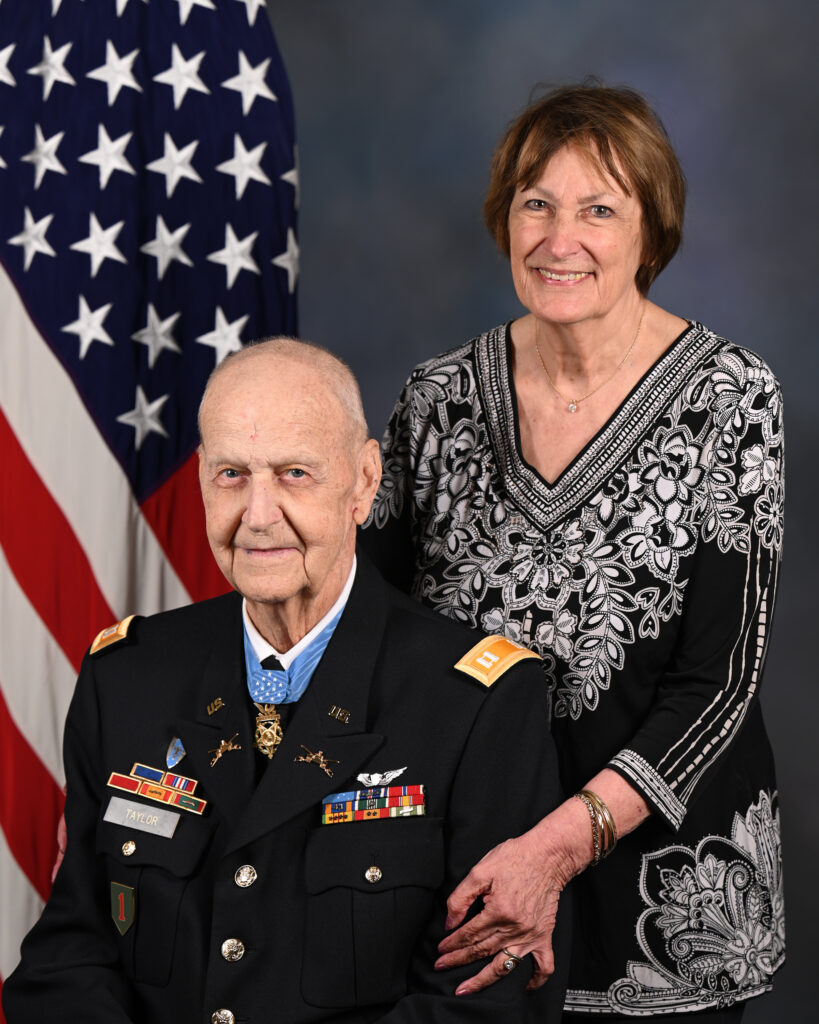
Larry Taylor
First Lieutenant Larry L. Taylor distinguished himself by acts of gallantry and intrepidity above and beyond the call of duty while serving with Troop D (Air), 1st Squadron, 4th Cavalry, 1st Infantry Division, on June 18, 1968, near the village of Ap Go Cong, Republic of Vietnam. On this date, First Lieutenant Taylor commanded a light fire team of two Cobra helicopter gunships scrambled on a nighttime mission in response to an urgent call for aerial fire support from a four-man long range patrol team. Upon arrival, First Lieutenant Taylor found the patrol team surrounded and heavily engaged by a larger Viet Cong force. He immediately requested illumination rounds from supporting artillery to assist with identifying the enemy positions. Despite intense enemy ground fire, he flew at a perilously low altitude placing a devastating volume of aerial rocket and machine gun fire on the enemy forces encircling the friendly patrol. For approximately 45 minutes, First Lieutenant Taylor and his wingman continued to make low-level danger-close attack runs on the surrounding enemy positions. When enemy fire increased from the village of Ap Go Cong, he requested artillery rounds with lower illumination altitudes be fired on that portion of the village so that the burning rounds ignited the enemy positions. With both Cobra gunships nearly out of ammunition and the enemy still closing in on the patrol team, First Lieutenant Taylor flew the patrol team’s potential ground evacuation route, finding it unviable based on the heavy enemy fire encountered. Returning to the patrol team’s location, he continued to circle it at a low level under intense enemy fire, employing his search light to make fake gun runs on the enemy positions to distract them from the patrol team. Running low on fuel and with the patrol team nearly out of ammunition, First Lieutenant Taylor decided to extract the team with his two-man Cobra helicopter gunship, a feat never before accomplished. He directed his wingman to fire their remaining mini-gun rounds on the patrol team’s east flank. First Lieutenant Taylor then fired his own last mini-gun rounds on the enemy positions, opening an avenue of movement to the east for the patrol team. He directed the patrol team to move 100 yards towards the extraction point where First Lieutenant Taylor, still under enemy fire, landed his helicopter and instructed the patrol team to climb aboard anywhere they could. With the four-man long range patrol team seated on rocket-pods and skids, he evacuated them to the nearest friendly location, undoubtedly saving their lives. First Lieutenant Taylor’s conspicuous gallantry, his profound concern for his fellow soldiers, and his intrepidity at the risk of his life above and beyond the call of duty are in keeping with the highest traditions of military service and reflect great credit upon himself, his unit, and the United States Army.
Larry Taylor received the Silver Star for his actions on June 18, 1968. This decoration is to be upgraded to the Medal of Honor. Below is a summary of his actions:
A Long-Range Reconnaissance Patrol conducted a mission to recon the area near Ap Gò Công in Binh Duong Province. When the unit came under heavy enemy fire and were surrounded, they called for support. In response, two AH-1G Cobra helicopters, one piloted by First Lieutenant Larry Taylor along with his copilot J.O. Ratliff, arrived on the scene and provided fire support for the beleaguered men.
However, this fire support was not enough as the numerically superior enemy began to overrun the small recon team. In a bid to rescue the men, 1st Lt. Taylor advised the men on the ground to create a distraction and then fall back to a landing zone. While under direct enemy fire, 1st Lt. Taylor lowered his AH-1G Cobra and picked up the four men who clung to the skids and rocket pods. The men were successfully carried to safety. 1st. Lt. Taylor’s aircraft had sustained sixteen hits upon later inspection.
Larry Taylor retired from the U.S. Army as a Captain.
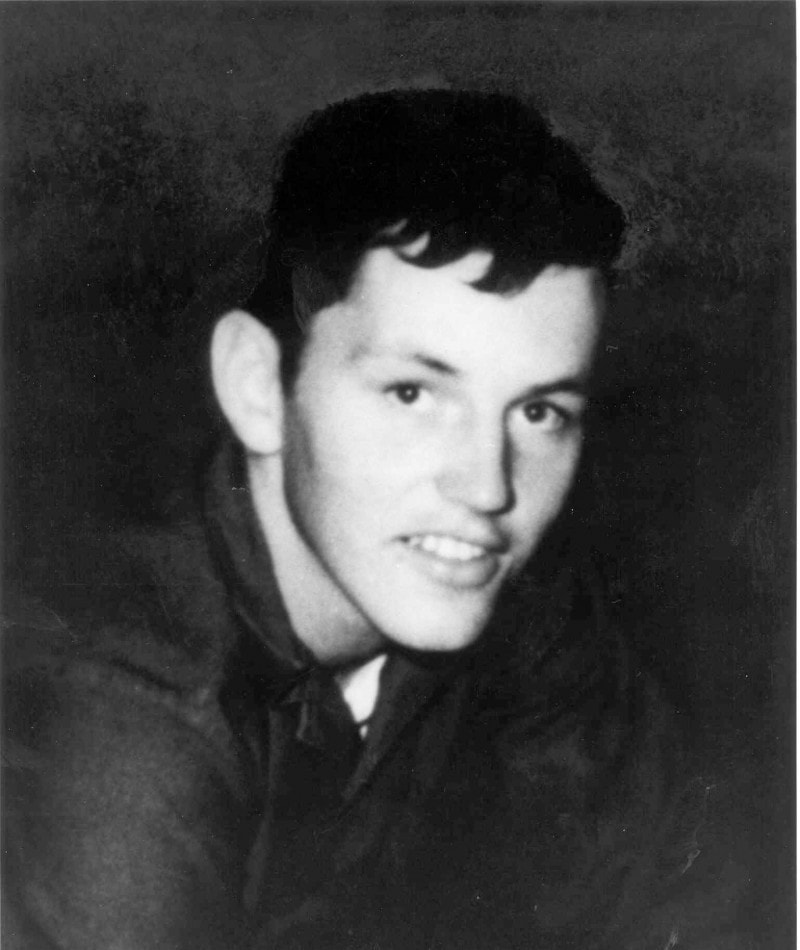
Mitchell Stout
Sgt. Stout distinguished himself during an attack by a North Vietnamese Army Sapper company on his unit’s firing position at Khe Gio Bridge. Sgt. Stout was in a bunker with members of a searchlight crew when the position came under heavy enemy mortar fire and ground attack. When the intensity of the mortar attack subsided, an enemy grenade was thrown into the bunker. Displaying great courage, Sgt. Stout ran to the grenade, picked it up, and started out of the bunker. As he reached the door, the grenade exploded. By holding the grenade close to his body and shielding its blast, he protected his fellow soldiers in the bunker from further injury or death. Sgt. Stout’s conspicuous gallantry and intrepidity in action, at the cost of his own life, are in keeping with the highest traditions of the military service and reflect great credit upon him, his unit, and the U.S. Army.
Mitchell Stout enlisted in Raleigh, North Carolina.
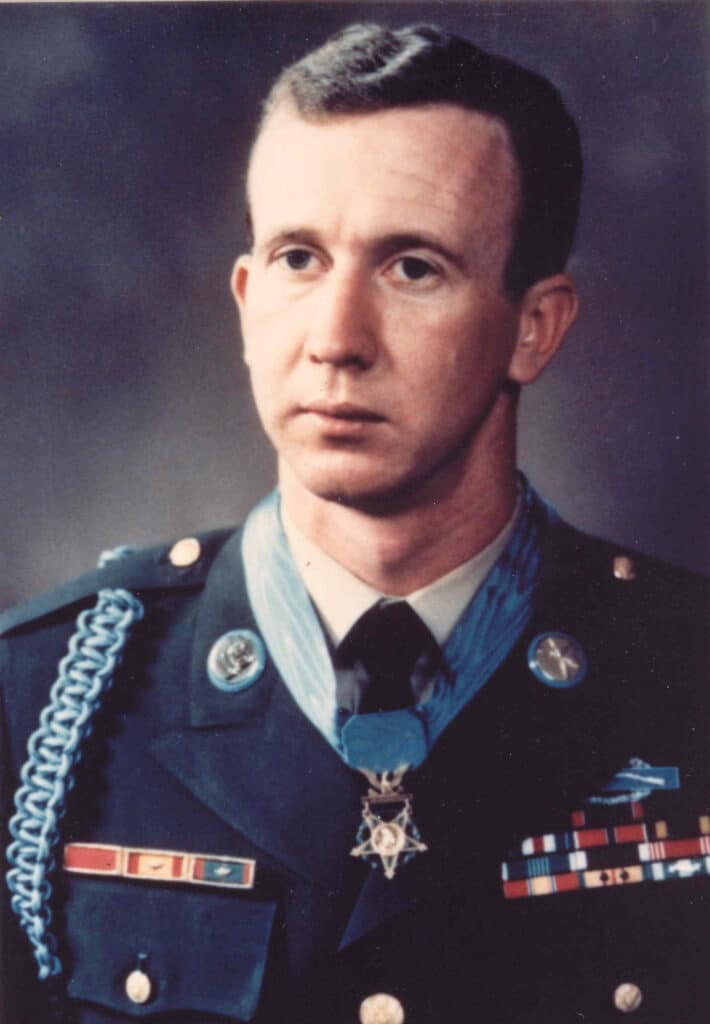
Don Jenkins
For conspicuous gallantry and intrepidity in action at the risk of his life above and beyond the call of duty. Staff Sergeant Jenkins (then Private First Class), Alpha Company, distinguished himself while serving as a machine gunner on a reconnaissance mission. When his company came under heavy crossfire from an enemy complex, Staff Sergeant Jenkins unhesitatingly maneuvered forward to a perilously exposed position and began placing suppressive fire on the enemy. When his own machine gun jammed, he immediately obtained a rifle and continued to fire into the enemy bunkers until his machine gun was made operative by his assistant. He exposed himself to extremely heavy fire when he repeatedly both ran and crawled across open terrain to obtain resupplies of ammunition until he had exhausted all that was available for his machine gun. Displaying tremendous presence of mind, he then armed himself with 2 antitank weapons and, by himself, maneuvered through the hostile fusillade to within 20 meters of an enemy bunker to destroy that position. After moving back to the friendly defensive perimeter long enough to secure yet another weapon, a grenade launcher, Staff Sergeant Jenkins moved forward to a position providing no protection and resumed placing accurate fire on the enemy until his ammunition was again exhausted. During this time, he was seriously wounded by shrapnel. Undaunted and displaying great courage, he moved forward 100 meters to aid a friendly element that was pinned down only a few meters from the enemy. This he did with complete disregard for his own wound and despite having been advised that several previous rescue attempts had failed at the cost of the life of one and the wounding of others. Ignoring the continuing intense fire and his painful wounds, and hindered by darkness, he made three trips to the beleaguered unit, each time pulling a wounded comrade back to safety. Staff Sergeant Jenkins’ extraordinary valor, dedication, and indomitable spirit inspired his fellow soldiers to repulse the determined enemy attack and ultimately to defeat the larger force. Staff Sergeant Jenkins’ risk of his life reflects great credit upon himself, his unit, and the U.S. Army.
Don Jenkins enlisted in Nashville, Tennessee. Jenkins sustained shrapnel wounds to his stomach and both legs. He worked in coal mines until his retirement in 1999.
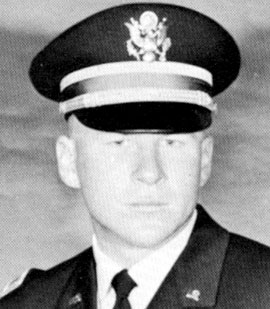
James A. Gardner

Walter K. Singleton
